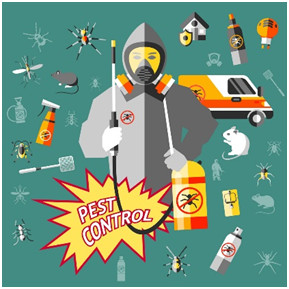The Role Of Optimal Nutrition In Prenatal Health
Author: Dr. Stephen Chaney
 There is no question autism rates are skyrocketing. The prevalence of autism in young children has increased 2-fold since 2000, 4-fold since 1996, and as much as 13-fold since 1980. A large part of that increase is simply due to changes in the diagnostic criteria for autism, but there are probably biological and environmental factors involved as well.
There is no question autism rates are skyrocketing. The prevalence of autism in young children has increased 2-fold since 2000, 4-fold since 1996, and as much as 13-fold since 1980. A large part of that increase is simply due to changes in the diagnostic criteria for autism, but there are probably biological and environmental factors involved as well.
The increase in autism has been blamed on vaccinations, cell phones, and GMO foods, but those theories have largely been debunked (I’m not sure anyone really believed that cell phone use by the parents could cause autism in their children).
Does folic acid during pregnancy reduce autism risk from pesticide exposure?
The recent claim that glyphosate exposure may cause autism has proven to be controversial, but that is just the “tip of the iceberg.” Numerous recent studies have suggested that pesticide exposure during conception and pregnancy may increase the risk of autism in the children. This is at least a plausible hypothesis. Most pesticides are neurotoxins, and animal studies have shown that pesticide exposure during conception and pregnancy can affect neurological development in the offspring.
This is a “bad news – good news” situation. The bad news is we live in an increasingly polluted world and some exposure to pesticides is inevitable. We can reduce pesticide exposure in the food we eat by choosing organic, but even organically-grown produce contains some pesticides . Even worse, a recent study found 217 neurotoxic chemicals in the umbilical cord blood of newborn babies.
The good news is optimal nutrition during conception and pregnancy may reduce the risk of autism. In a previous study (R.J. Schmidt et al, Epidemiology, 22: 476-485, 2011 q), the authors showed that for mothers with a MTHFR gene defect, a prenatal supplement providing 400 ug of folic acid per day was associated with a 4.5-fold decreased risk of giving birth to a child with autism. That lead them to ask whether optimum folic acid status could reduce the effect of pesticides on autism risk.
[Note: I am not sharing this study with you because it is definitive. It is not. Further studies will be required to confirm these results. I am sharing it with you because, if true, it has some important implications that are not usually discussed in the scientific or popular literature.]
How Was The Study Designed?
 This study (R.J. Schmidt et al, Environmental Health Perspectives, doi: 10.1289/EHP604) is what is known as a case control study. The mothers in the study were part of the Childhood Autism Risks From Genetics and the Environment (CHARGE) study. The children in the study were clinically confirmed to have ASD (autism spectrum disorders). The investigators chose 296 families from the CHARGE group for whom maternal folic acid intake and pesticide exposures were known. They compared them to 220 controls that did not have ASD and were matched by age, ethnicity, and socioeconomic status.
This study (R.J. Schmidt et al, Environmental Health Perspectives, doi: 10.1289/EHP604) is what is known as a case control study. The mothers in the study were part of the Childhood Autism Risks From Genetics and the Environment (CHARGE) study. The children in the study were clinically confirmed to have ASD (autism spectrum disorders). The investigators chose 296 families from the CHARGE group for whom maternal folic acid intake and pesticide exposures were known. They compared them to 220 controls that did not have ASD and were matched by age, ethnicity, and socioeconomic status.
They assessed household pesticide exposure (pet flea & tick products, indoor pesticides, and outdoor sprays or foggers) through telephone interviews. They also used telephone interviews to estimate total folic acid intake from multivitamins, prenatal vitamins and vitamin fortified foods. They assessed agricultural pesticide exposure based on proximity to areas of heavy agricultural pesticide use.
They considered the autism risk of women who were taking 800 ug of folic acid and had no known exposure to pesticides as the baseline. Anything below 800 ug was consider low folic acid intake. Basically, they were looking at the effects of low folic acid intake and pesticide exposure on autism risk.
Does Folic Acid During Pregnancy Reduce Autism Risk From Pesticide Exposure?
 For women with low folic acid intake during conception and early pregnancy, pesticide exposure significantly increased autism risk. The breakdown was as follows;
For women with low folic acid intake during conception and early pregnancy, pesticide exposure significantly increased autism risk. The breakdown was as follows;
- Exposure to any indoor pesticides increased autism risk 2.5-fold.
- Exposure to pet flea & tick pesticides increased autism risk 3.9-fold.
- Exposure to indoor pesticide sprays & foggers increased autism risk 2.6-fold.
- Exposure to outdoor pesticide sprays & foggers increased autism risk 4.1-fold
- Exposure to agricultural pesticides increased autism risk 2.2-fold.
In contrast, high (800 ug) intake of folic acid during pregnancy (early) and conception significantly decreased the effect of pesticide exposure on autism risk. The breakdown was as follows:
- 27% decrease in autism risk due to exposure to any indoor pesticides.
- 59% decrease in autism risk due to pet flea & tick pesticide exposure.
- 32% decrease in autism risk due to indoor pesticide sprays & foggers.
- 56% decrease in autism risk due to outdoor pesticide sprays & foggers.
- 50% decrease in autism risk due to agricultural pesticide exposure.
In short, this study suggests that pesticide exposure during pregnancy increases autism risk and 800 ug of folic acid during conception and early pregnancy substantially decreases the effect of pesticide exposure on autism risk.
What Does This Study Mean For You?
 If confirmed by subsequent research, this study has several significant implications that deserve serious consideration.
If confirmed by subsequent research, this study has several significant implications that deserve serious consideration.
#1:Pesticide exposure is ubiquitous. Nobody wants bugs in their house or on their garden plants, so we spray pesticides everywhere without giving it a second thought. We don’t want to be bothered by mosquitoes so we use foggers on our outdoor areas and spray bug repellents on ourselves when we go outdoors. We want the perfect lawn so we hire someone to spray gallons of pesticides and herbicides on the lawn where we and our children will play. We have pesticides on our food and in our water. If we live in agricultural areas, we breath pesticides. That’s how we end up with 287 environmental toxins (217 of which are neurotoxins) in the umbilical cord blood of newborn babies.
#2: Pesticide exposure is not innocuous. This study suggests pesticide exposure during pregnancy increases autism risk. Other studies suggest pesticide exposure increases the risk of ADHD, birth defects, cancer and much more. None of these studies is definitive by itself. The problem is that most pesticide exposure is at relatively low levels. In addition, nobody is pesticide free so it is difficult to find a good control population. It would require very large population studies to show conclusive effects, and those studies would be extremely expensive. However, when you see study after study suggesting that pesticide exposure may be harmful to our health, it may be time to take notice and ask whether all this pesticide use is essential.
#3: Supplementation may help protect us from environmental toxins. This study suggests that folic acid during pregnancy helps protect against the autism risk from pesticide exposure. Other studies suggest supplementation helps protect against the bad effects of other environmental toxins. We talk about the need of supplementation to fill the nutritional gaps of our bad diets. We talk about how supplementation can help meet the increased needs associated with disease, biological stress and genetic defects. However, we seldom talk about the need for supplementation to help protect us from environmental toxins in our increasingly polluted world.
#4: Flea & tick pesticides for your pets are among the worst offenders. If you are a woman who is pregnant or of childbearing age, have your husband or veterinarian handle the flea & tick medicine. You don’t want to be touching the stuff.
#5: Once again, folic acid was sufficient to do the job, even in women with MTHFR deficiency.
The Bottom Line
A recent study suggests that pesticide exposure during pregnancy increases autism risk, and that supplementation with 800 ug of folic acid during conception and early pregnancy substantially decreases the effect of pesticide exposure on autism risk.
There are several important implications of this research.
- Pesticide exposure is ubiquitous. That’s how we end up with 287 environmental toxins (217 of which are neurotoxins) in the umbilical cord blood of newborn babies.
- Pesticide exposure is not innocuous. This study suggests that pesticide exposure during pregnancy significantly increases autism risk in newborns. Other studies suggest pesticide exposure increases the risk of ADHD, birth defects, cancer, and much more. Perhaps it is time to seriously consider decreasing pesticide usage.
- Flea & tick medicines for your pets are among the worst offenders. If you are a woman who is pregnant or of childbearing age, have your husband or veterinarian handle the flea & tick medicine. You don’t want to be touching the stuff.
- Supplementation can help protect us from environmental toxins. This study suggests folic acid can help protect pregnant women against the autism risk from pesticide exposure during pregnancy. Other studies suggest supplementation helps protect against the bad effects of other environmental toxins. We don’t give enough consideration to the need for supplementation to help protect us from environmental toxins in our increasingly polluted world.
- Once again, folic acid was sufficient to do the job, even in women with MTHFR deficiency.
For more details, read the article above.
These statements have not been evaluated by the Food and Drug Administration. This information is not intended to diagnose, treat, cure or prevent any disease.
